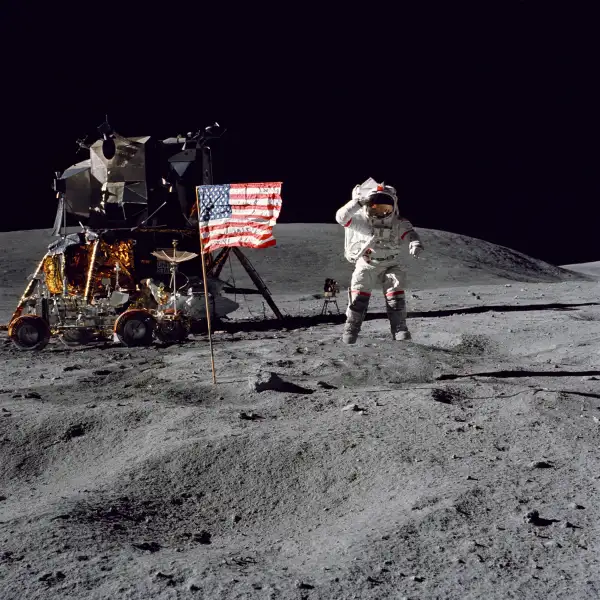"Finders Keepers" Rule Now Applies to Space

As of this week, if you somehow make it to the Moon and find valuable minerals, you get to keep the bounty. On Tuesday, Congress passed H.R. 2262, a "Finders Keepers" law that allows someone who discovers resources on another planet, galaxy, or universe to claim them legally.
The idea is to encourage private businesses to undertake space exploration, which until recently was the exclusive domain of government agencies. Thanks to the Commercial Space Launch Act of 1984 and its amendments, companies like SpaceX and Virgin Galactic are free to make Millennium Falcons and explore galaxies far, far away.
While you can now set up a private gold mine on the Moon or Mars, you still can't plant a flag and claim sovereignty over the planet like a conquistador. According to international law, extraterrestrial real estate can't be claimed (though some con artists have hawked deeds for lunar land).
"Neither the surface nor the subsurface of the moon, nor any part thereof or natural resources in place, shall become property of any State, international intergovernmental or non-governmental organization, national organization or non-governmental entity or of any natural person." —Agreement Concerning the Activities of States on the Moon and other Celestial Bodies, Article 11, 3. (1979)
The move to allow companies to keep their spoils came from both sides of the aisle and lasts until 2025, which means that it will likely have to be renewed to have any real effect. Still, it's a small carrot in front of private space exploration.
"H.R. 2262 facilitates a pro-growth environment for the developing commercial space sector," said Texas Rep. Lamar Smith (R), who chairs the House Science, Space, and Technology Committee.
The bill also extends the "learning period" given to the FAA—which is when the agency figures out what it needs to regulate—until 2023. With support for a celestial Gold Rush until then, Congress hopes it will spur on more space investment.
Read next: Your iPhone Keeps a List of Everywhere You’ve Ever Been. Here’s How to Delete It